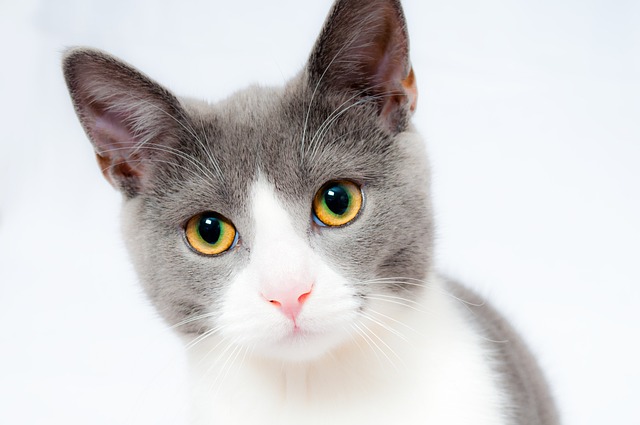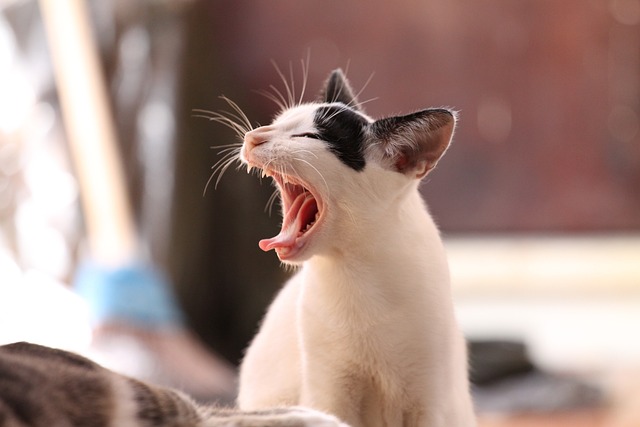Indoors cats typically live between 10 and 15 years, with many of them living well into their teens and early 20s. Compared to their more domesticated counterparts, outdoor cats typically have much shorter lifespans.
We all wish our pets could stay with us forever, bringing us unending happiness and love. Unfortunately, a cat’s lifespan is much shorter on average than a person’s. That shouldn’t deter people from becoming pet parents. Pets can live perfectly healthy, long, and happy lives if given the right care.
With the right diet and care, the typical kitten owner can anticipate that healthy domestic cats will live for more than ten years. More than two decades of unconditional love have been given by some feline lovers’ pets, who have lived even longer.
Table of Contents
Indoor Vs. Outdoor Cats: the Pros and Cons
Cats that live outdoors typically have shorter lifespans than indoor cats because they are exposed to more risks. They run the risk of coming into contact with predators, getting hit by cars, or ingesting something harmful. If your cat lives indoors, you’ll also probably notice health issues with her earlier.
Indoor living does have some drawbacks, though. Due to their reduced activity levels compared to outdoor cats, indoor cats are more likely to put on weight. You need to carefully monitor her food intake because that weight gain can result in a variety of health problems. Cats that live indoors are also more likely to become bored, so they require a lot of mental stimulation at home.
How Long Do Indoor Cats Live?
The American Veterinary Medical Association advises cat owners that it is generally safer to keep cats inside and that indoor cats typically live longer. Cats that live indoors typically live between 10 and 15 years, with many of them living well into their teens and early 20s.
Reasons to Keep Your Cat Inside
Be hit by vehicles
Become injured from other cats, or attacked by other dogs or predators
Contract deadly infectious diseases from other cats
Get lost and/or picked up by Animal Control
Poisoned by toxins, such as antifreeze or rat bait
Contract parasites, such as fleas and ticks (and the diseases they can carry)
Contact with environmental hazards, such as foxtails or other objects
Hunt native wildlife, some of them species of conservation concern
Unhappy neighbors may try to trap cats found littering their yards
Theft, injury, or death from people with cruel intentions
How Long Do Outdoor Cats Live?
Compared to their more domesticated counterparts, outdoor cats typically have much shorter lifespans. The average lifespan of an outdoor cat is only two to five years, according to the Clinical Animal Behavior Service at the University of California, Davis.
Read about What Do Outdoor Cats Like To Sleep In At Night?
Why Do Outdoor Cats Live Shorter Lives?
Outdoor felines face a range of potentially life-threatening dangers, including:
- Cars, trucks, and other vehicles
- Cats, dogs, and wild animals
- Parasites like fleas and ticks
- Poisons, including pesticides and fertilizers
- Toxic plantslike lilies
Outdoor wandering cats run the risk of being stolen or being apprehended by animal control officials. When pets are microchipped and registered in the appropriate database, their chances of coming home increase significantly.

How Do Cat and Human Years Compare?
You’ve probably heard the “fact” that dogs age seven human years every 365 days, but what about cats? According to the American Association of Feline Practitioners (AAFP) and the American Animal Hospital Association (AAHA), here’s how your cat’s age in “cat years” compares to their age in human years:
- A cat’s first year is equivalent to about 15 human years.
- They then advance in age by nine years in their second year.
- A human year is roughly equal to four years plus one.
Read about How Long Can Cats Survive Without Water?
How Old is Your Cat?
- 0 to 1 month:1 human year
- 2 to 3 months:2 to 4 human years
- 4 months:6 to 8 human years
- 6 months:10 human years
- 7 months:12 human years
- 12 months:15 human years
- 18 months:21 human years
- 2 years:24 human years
- 3 years:28 human years
- 4 years:32 human years
- 5 years:36 human years
- 10 years:56 human years
- 15 years:76 human years
- 20 years:96 human years
Given their long lifespans, cats are likely to live close to full human lifespans. According to UN estimates, the average global life expectancy in 2019 will be 72.9 years. A little over 14 cat years, to be exact
Your Cat’s Life Stages
- Kitten:Birth to six months
- Junior:Seven months to two years
- Prime:Three years to six years
- Mature:Seven years to 10 years
- Senior:11 years to 14 years
- Geriatric:15+ years
Can An Outdoor Cat Become An Indoor Cat?
Knowing if a cat is feral or stray is crucial if you want to assist him in becoming an indoor cat. Since they have never been cared for by people, feral cats display signs of fear when you approach. Ferals are not likely to adapt to living inside. While feral cats may initially behave similarly, they have previously experienced human company. If you give them food and spend time outside with them while they eat, they’ll eventually come to like you. Before you try to pet the stray cat, let him first sniff your hand and make the first move. Your relationship will develop over time, so you can eventually let him stay inside for longer and longer periods of time. However, if you already have a cat, you should first have the stray cat examined by a veterinarian.
Read about
Average Lifespans of Popular Cat Breeds
The typical lifespan of a cat is influenced by a variety of variables. The genetic traits that a cat inherits from its ancestors are among them. As the examples below make clear, some breeds live longer than others:
- American Shorthair:15 to 20 years
- Bengal:14 to 16 years
- Burmese:16 to 18 years
- Maine Coon:10 to 13 years
- Manx:8 to 14 years
- Persian:10 to 17 years
- Ragdoll:15 to 18 years
- Russian Blue:15 to 20 years
- Savannah:12 to 20 years
- Siamese:12 to 20 years
- Sphynx:10 to 15 years
Can a Cat Live Up to 20 Years?
Cats have an extended life span of at least 20 years. Cats have been known to live into their 20s, according to numerous reports. The health, level of care, and genetic makeup of a cat are just a few of the many variables that can affect how long it lives. Age-related changes in cats’ needs can necessitate additional care, such as more frequent vet visits and dietary supplements.
Help Your Cat Live a Long Life
You desire to see your cat live a long and healthy life. Following a few simple guidelines can help your cat thrive well into adulthood and ensure you’ve got plenty of time together:
Veterinary Care
Even the most knowledgeable cat enthusiast cannot handle everything by themselves. From the time your pet is a kitten to the time it is old and gray, your veterinarian is a trusted advisor who will provide practical advice. They’ll advise you on how to foster a joyful, healthy lifestyle at home and assist you in identifying warning signs before they develop into serious health issues. Like people, cats can develop long-lasting medical conditions that shorten their lives and lower their quality of life. A good veterinarian will make sure you’re doing everything you can to make the most of your time with your pet while avoiding putting them through unnecessary stress or suffering.
Nutrition
Planning the diet for your cat will also require consulting with your veterinarian. As a cat ages, its nutritional requirements will change, and a veterinarian can help you make sure you’re always giving it everything it needs. Your veterinarian might advise consuming commercial foods with supplements, or even buying unique prescription blends, if necessary. Find out more about assisting your cat in keeping a healthy weight.
Lifestyle
It has been noted that indoor cats typically live much longer than outdoor cats. Keeping cats indoors is typically thought to increase their longevity, even though the typical home has its fair share of hazards. Make sure to “cat-proof” your home, removing variables and hazards to create a safe environment. As your cat ages, keep in mind that things will change. For an older cat as opposed to a kitten, you’ll probably need to make some different adjustments.
Exercise and Engagement
Although they may appear lazy, cats require both physical and mental stimulation. It’s crucial for pets’ happiness as well as their health to get regular exercise. Pets can be kept entertained with toys and opportunities for exploration to prevent boredom and promote mental sharpness into their senior years.
Pet Insurance
Pet health emergencies cannot be prevented, but insurance’s financial security can be very helpful when it comes time to provide care. There are numerous options available from providers. Simpler policies only provide protection against accidents and illnesses, whereas more comprehensive ones pay for everything from routine care to final expenses.
The Oldest Cat of All Time
A cat named Creme Puff from Austin, Texas, holds the record for the longest lifespan of a pet cat in history, according to the Guinness Book of World Records. The American Shorthair, born in 1967, lived to a whopping 38 years old and served as a loyal family pet for more than three decades. The devoted family of the elderly cat claimed to have fed him an unusual diet that included things like heavy cream and asparagus.
In Summary…
Weighing the costs and advantages of having an indoor or outdoor cat, we advise keeping your cat inside for the sake of your pet’s safety and health. As was previously mentioned, there are a variety of dangers that your cat might run into if left unattended outside. There are many ways to improve the environment of your cat and give it a happy life if you believe it is bored indoors. Get in touch with your veterinarian for more details.


